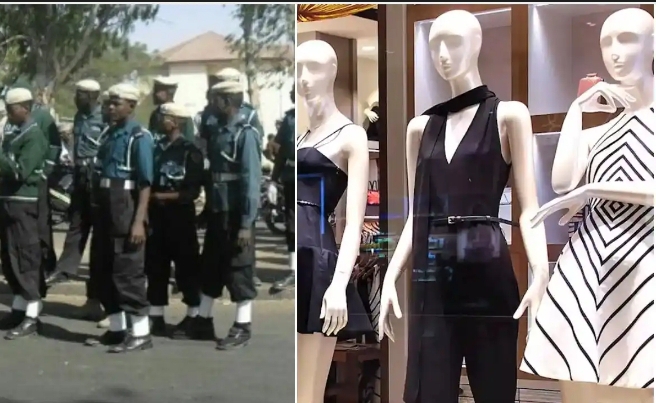The Islamic police force in Kano, known as Hisbah has ordered shops to only use headless mannequins to advertise clothing.
This, it said, is because Islamic doctrines are against idolatry.
“Islam frowns on idolatry,” Haruna Ibn-Sina, the commander of the Sharia police said.
BBC also quoted him as saying, “With the head on, it looks like a human being.”
Ibn-Sina also wants the headless mannequins covered at all times because to show “the shape of the breast, the shape of the bottom, is contrary to the teachings of Sharia [Islamic law]”.
Also, some traders at Sabon Gari, a Christian-dominated part of Kano state, expressed their displeasure with the Hisbah’s order.
A shop owner, Chinedu Anya said displaying clothes on headless mannequins would reduce their attractiveness to passers-by and affect his business.
However, while some Muslims in Kano back the order, a handful of younger Muslims have noted that Hisbah’s interpretation of some of the teachings of Islam, such as on mannequins, is wrong.
“Islam forbids idolatry but the hadith [teachings of Prophet Muhammad] is clear on Allah judging your intentions. Unless you are bowing down to a mannequin, it can’t be seen as a sin,” a Muslim cleric said.
But a senior Muslim cleric, Halliru Maraya of the Islamic Council of Nigeria, says the position of the Hisbah on the mannequins is correct as “Islam is against carving human statues, whatever name you want to call it”.
While the announcement in Kano is the first in Nigeria, there have been attempts in other mainly Muslim countries to restrict the use of mannequins.
Kano is one of 12 states in the Muslim-majority north that practise Islamic law. The legal system is supposed to apply only to Muslims.
But in reality, non-Muslims come under pressure to adhere to Hisbah’s rulings, including the ban on full-bodied mannequins.








